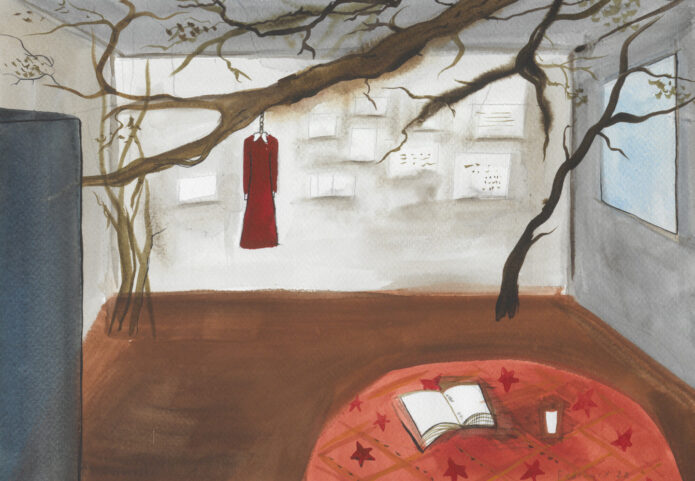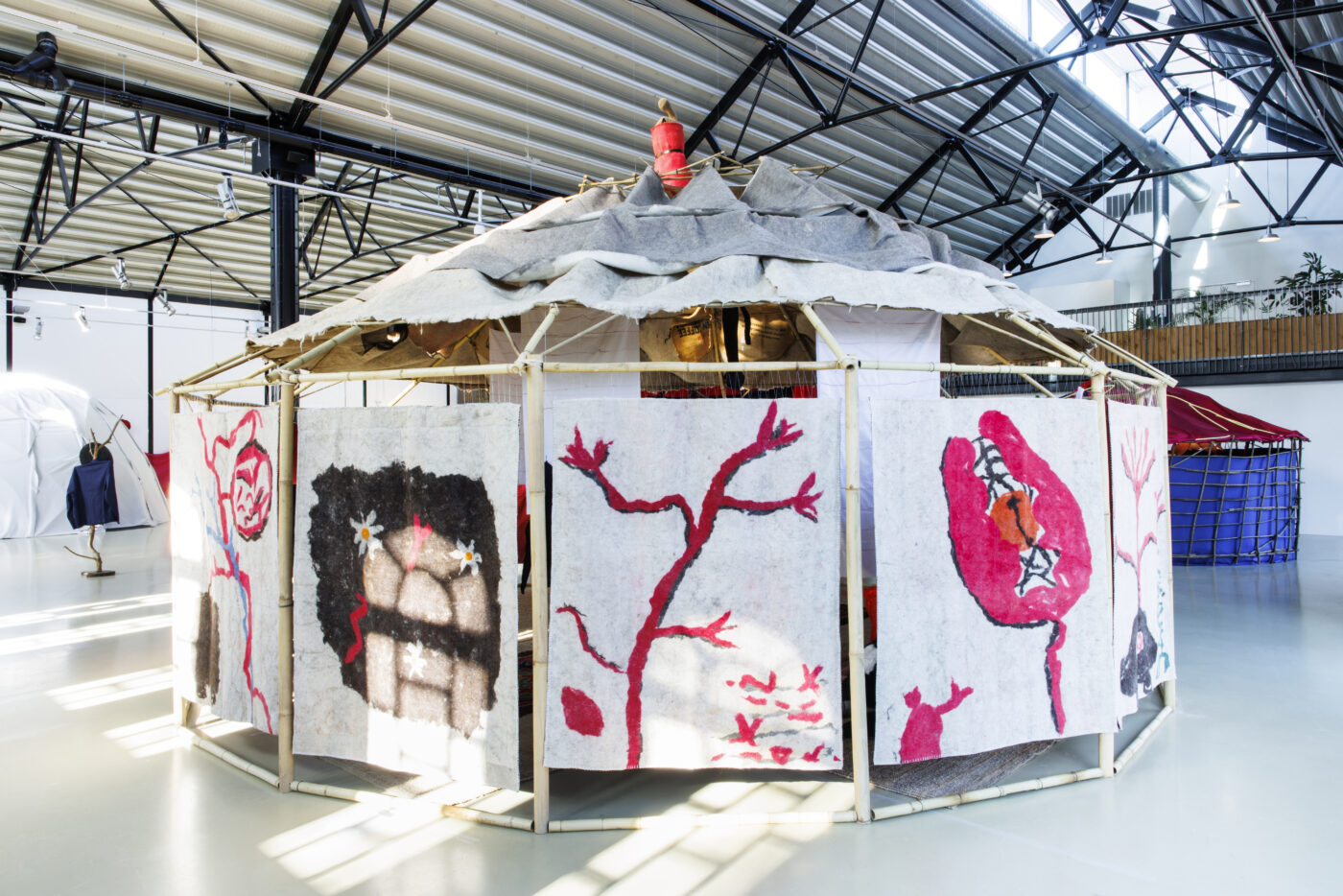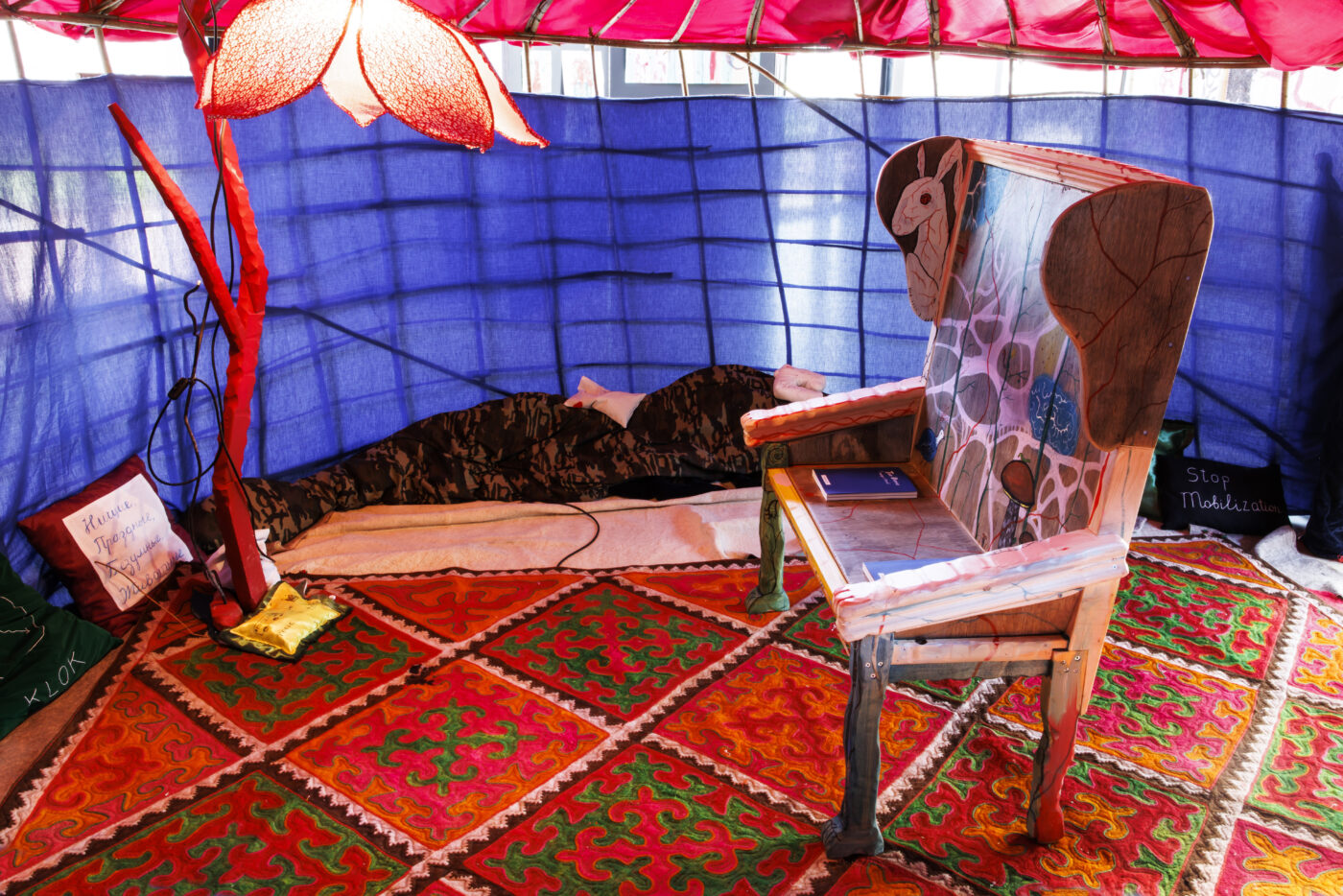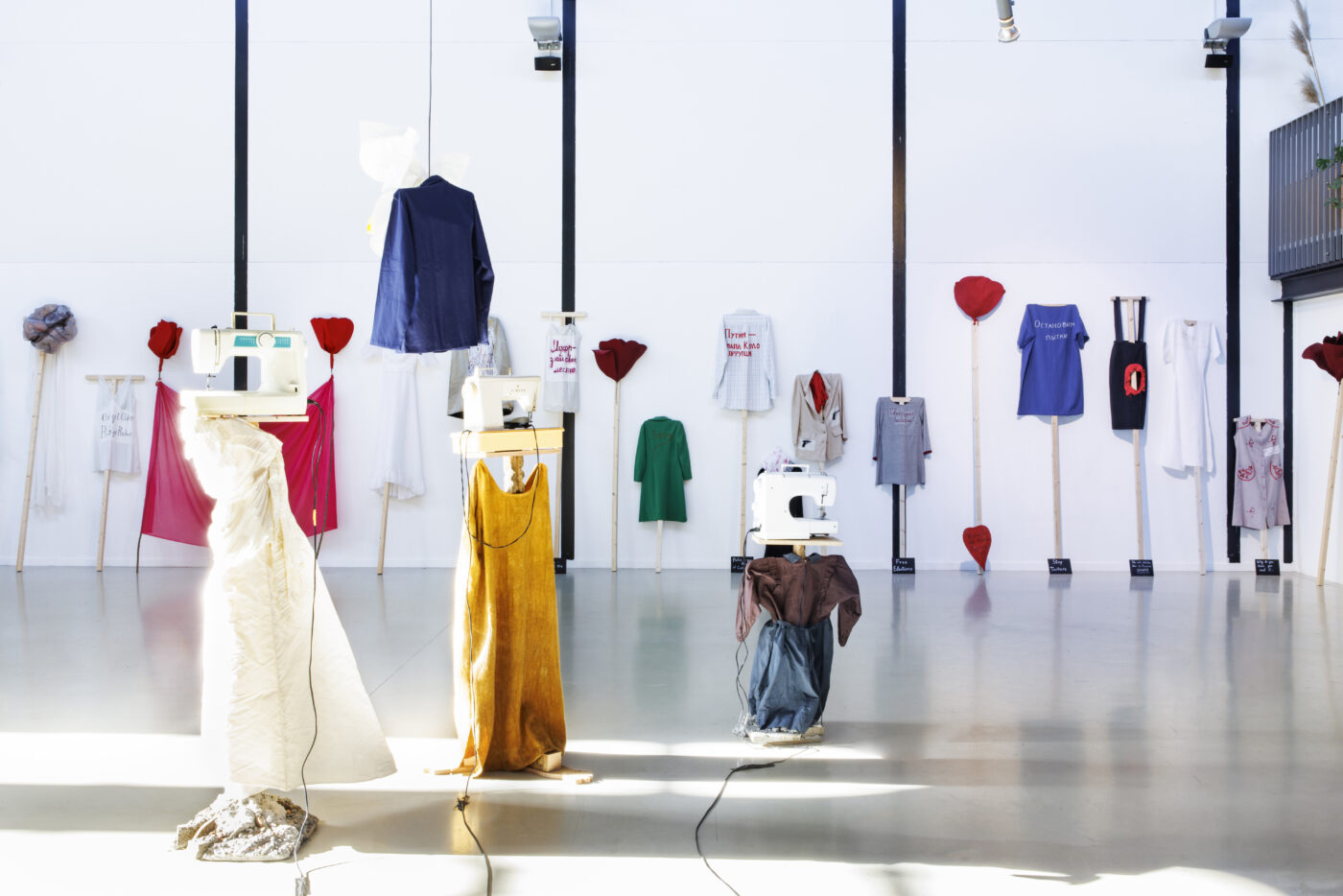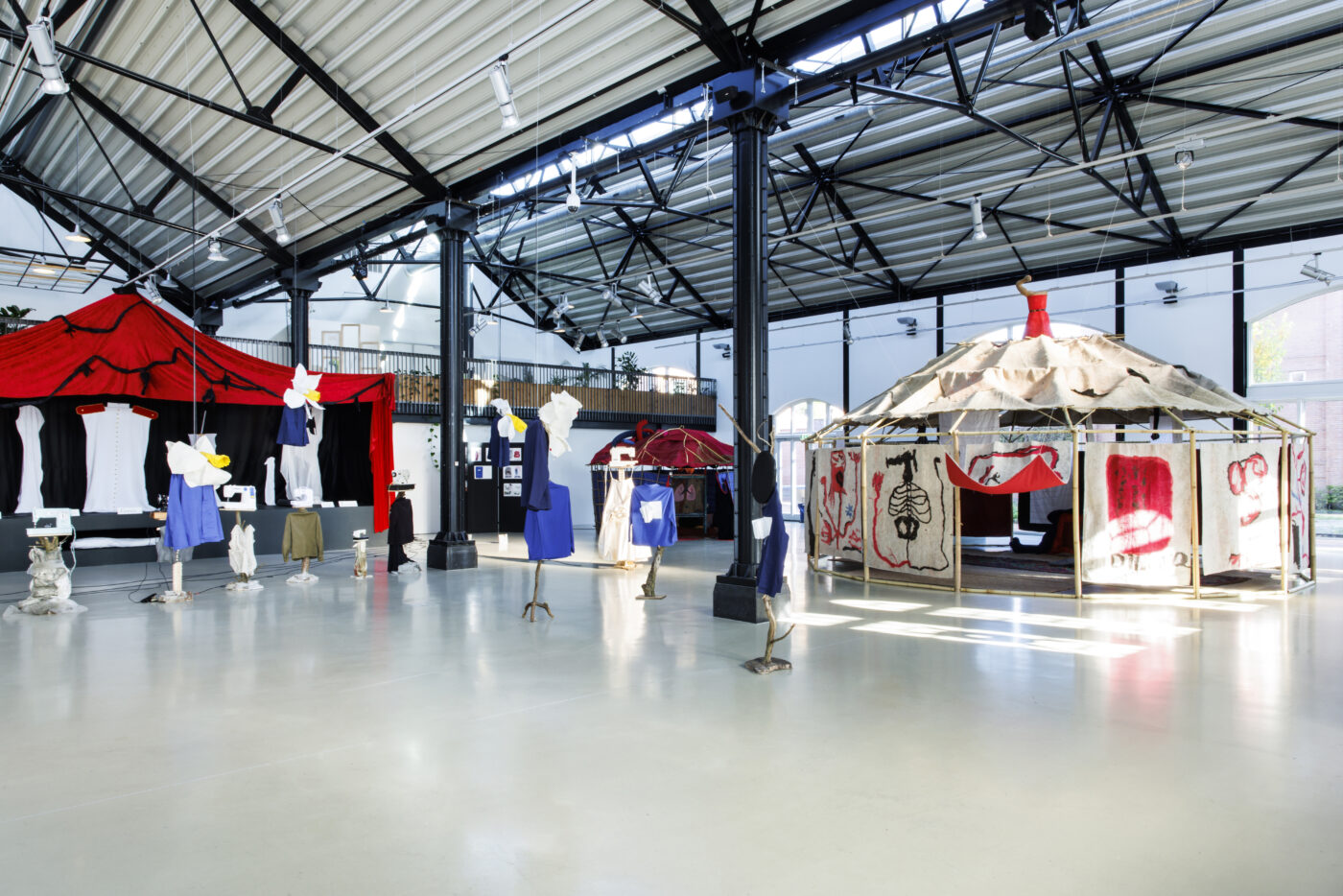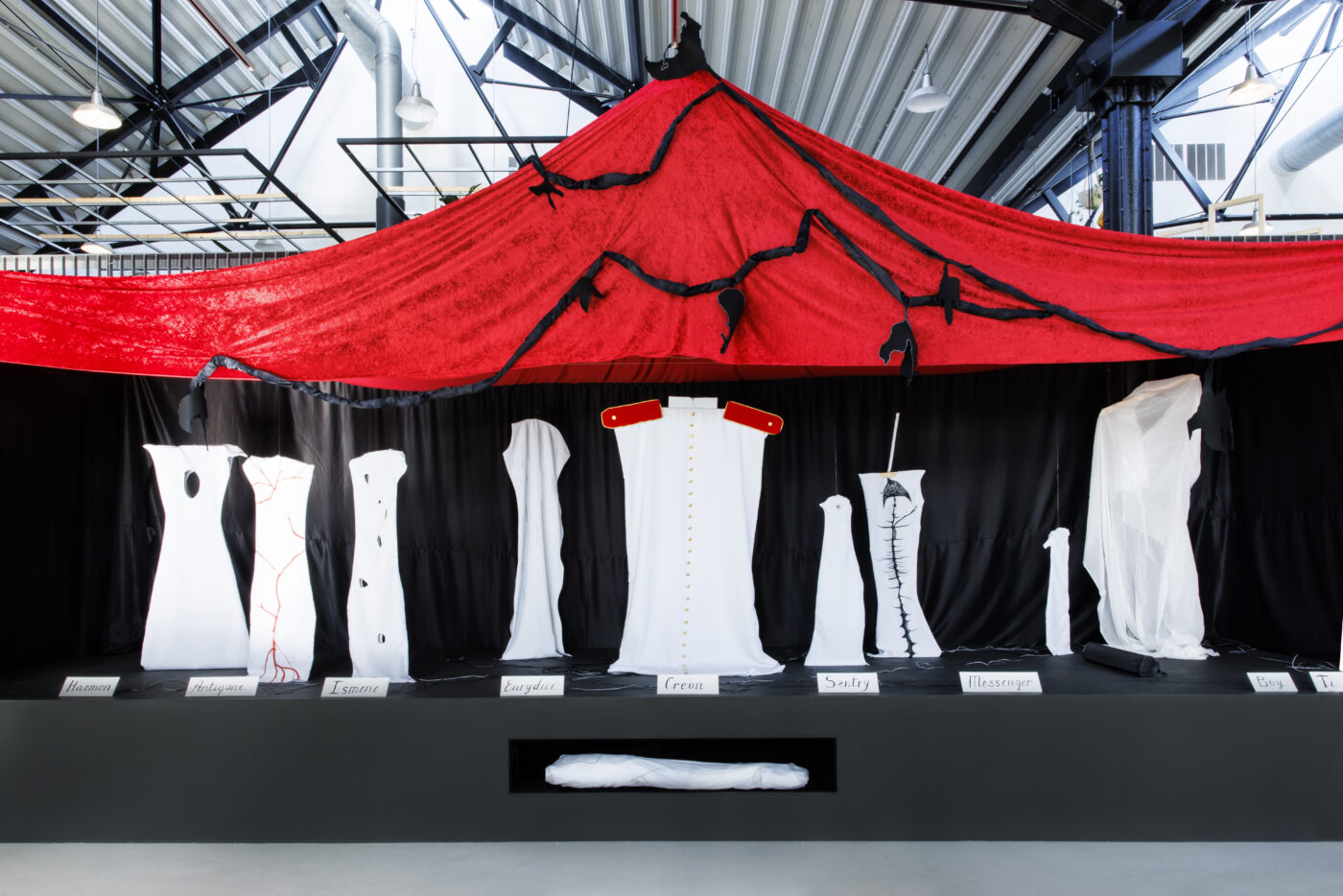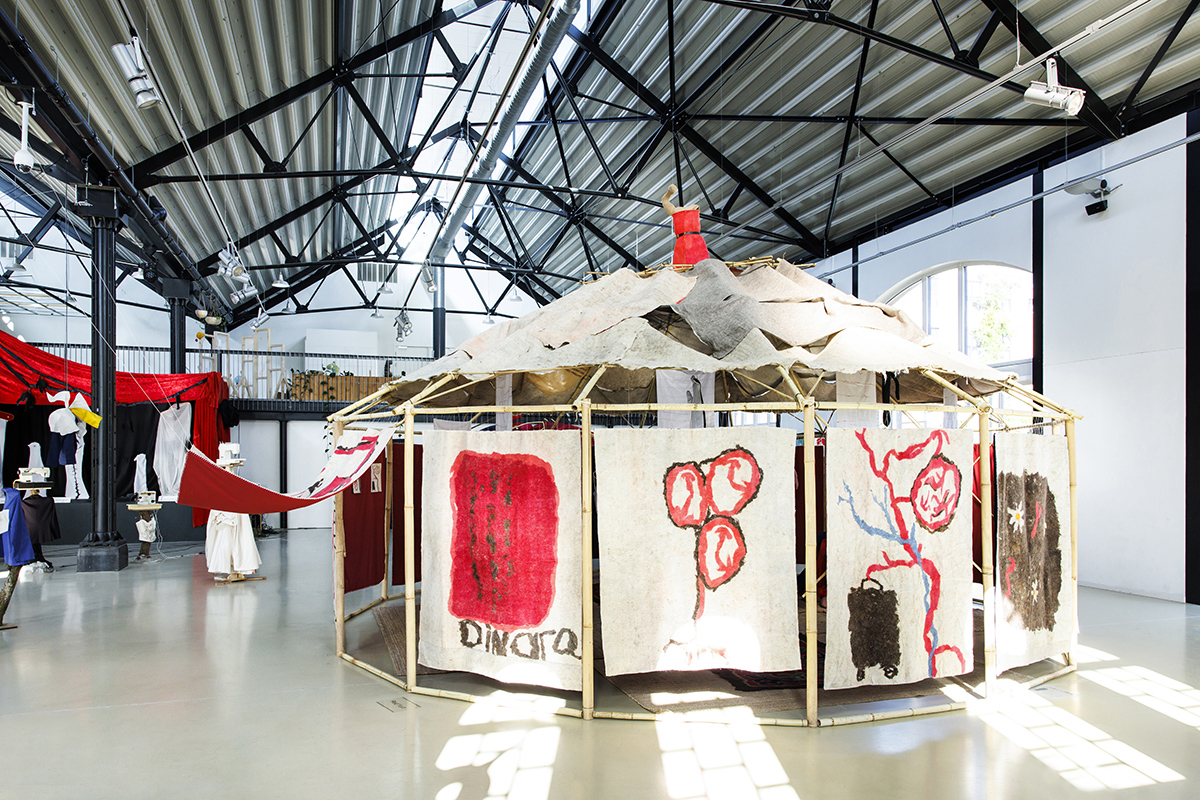14 Oct –
22 Jan 2023
Exhibition: To those who have no time to play
Framer Framed presents To those who have no time to play, the largest solo exhibition by the Amsterdam-based artist Gluklya (Natalia Pershina-Yakimanskaya), curated by Charles Esche. In keeping with her previous work, the exhibition involves many collaborators from Kyrgyz textile workers and recent migrants to the Netherlands to musicians and writers.
The exhibition is structured around four elements, each with its own unique architecture. These are two yurts, a dome, and a stage on which there will be occasional live performances. The works take us from Amsterdam to Bishkek, and via St. Petersburg back to Amsterdam again.
On the stage in Framer Framed, we see hanging dresses singing Antigone Update, a new version of the famous Greek tragedy Antigone written by Gluklya with Matras Platform. The music for the work is composed by Vladimir Rannev, with the vocal ensemble N’Caged (Moscow). During the opening of the exhibition on 13 October 2022, live performers from Matras Platform will join the first presentation of Antigone Update. Matras Platform is an informal mixed group of migrants and travellers from around the world who are living in Amsterdam; Gluklya initiated the group during the COVID pandemic.
The Red Yurt introduces the stories and artworks of women textile workers in Bishkek, Kyrgyzstan, operating under harsh conditions at home for the export trade to Russia. The dome resembles a melting snowball, inside which videos show the annual 1 May protests in Gluklya’s birthplace of St. Petersburg. The artist recorded these protests from 2017 to 2019, since then the Labour Day demonstrations have been banned.
The small yurt is an intimate space to read the diaries of Gluklya and Murad Zorava written during their stay in the former Bijlmerbajes prison in South-East Amsterdam, when it was used both as an artists’ incubator (broedplaats) and asylum centre.
Although conditions in Bishkek or St. Petersburg might seem far from Dutch society, bringing these different social and emotional geographies together through art emphasises connections between them. It is impossible to ignore the many disasters looming on the horizon: the climate crisis, extreme social inequality, the war in Ukraine and the harsh working lives of people supplying cheap goods to Western high streets. Gluklya relates it all in a surreal landscape, where humour appears unexpectedly. She takes us on an associative journey through global abuses, whether they be forced labour and migration, economic exploitation or abuse of power.
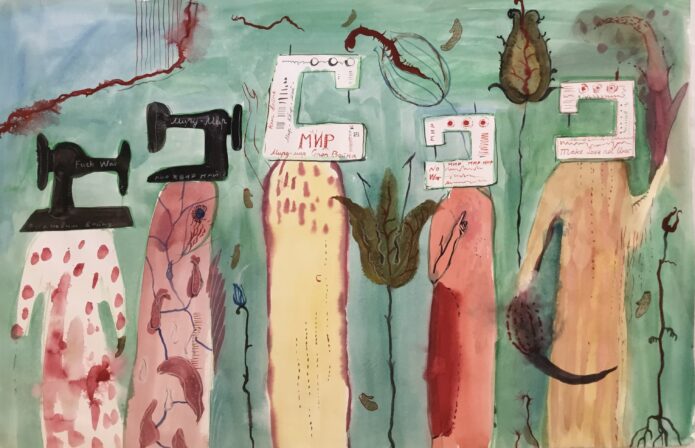
Gluklya, Sketch of Antigone (2022)
Contributors
Murad Zorava | Moawya Alkhadra | BiSCA (Saadat Aitalieva) | Shepherd Camara | Roger Cremers | Liah Frank | Natalia Grezina | Marianne Koeman | Vladimir Rannev | Benjamin Roth | Gulmira Tursunbaeva | Anna Bitkina | Shaiymkan Chylgobaeva | Kunduz Asanakunova | Anisa Ibrayeva | Nurlan Alymseitov | Dinara Akylova | Rahat Bolotbek kyzy | Zayna Ayazbekova | Open Line Foundation.
Gluklya / Natalia Pershina-Yakimanskaya lives and works in Amsterdam. Considered one of the pioneers of Russian performance art, her research is concentrated on finding ways to talk about the traumatic divisions within society and their implications on people’s lives. The conflict between the political regime and the inner world of the person forms the subject of her surreal drawings, performances in collaboration with diverse people, installations with poetic texts and things, and the Utopian Clothes. She is also part of Chto Delat, a multidisciplinary collective of which she has been an active member since 2003.
Charles Esche is the curator of the exhibition To those who have no time to play (2022). He is also the director of Van Abbemuseum, Eindhoven; an advisor at Jan van Eyck Academie, Maastricht and professor of contemporary art and curating at Central Saint Martins, UAL, London.
The music for voices, electronic sounds and ensemble of sewing machines is composed by Vladimir Rannev and performed by the vocal ensemble N’Caged (Moscow).
Dates
14 October 2022 – 22 January 2023
For those interested a free audio tour is available in English.
Below: podcast Bureau Buitenland – Russische protestkunst in Amsterdam (Russian protest art in Amsterdam)
Supported by
Ministerie van Onderwijs, Cultuur en Wetenschap; Amsterdams Fonds voor de Kunst; Stichting DOEN; Stadsdeel Oost; Van Abbemuseum.
- NERO Editions - 'New Communities of Care' by Anna Bitkina
- NERO Editions - 'To Those Who Can Imagine' by Anna Bitkina
- Podcast Bureau Buitenland - Russische protestkunst in Amsterdam
- Het Parool - ‘Artivist’ Gluklya demonstreert met kleding, kunst en theater tegen Russische onderdrukking
- Personal website of Gluklya
- Official Website of CHTO DELAT
Links
- Catalogue - To those who have no time to play (ENG)
- Press release - To Those who have no time to play (EN)
- Persbericht - To Those who have no time to play (NL)
Attachments
Art and Activism / Performance / Political Climate / Textile /
Exhibitions
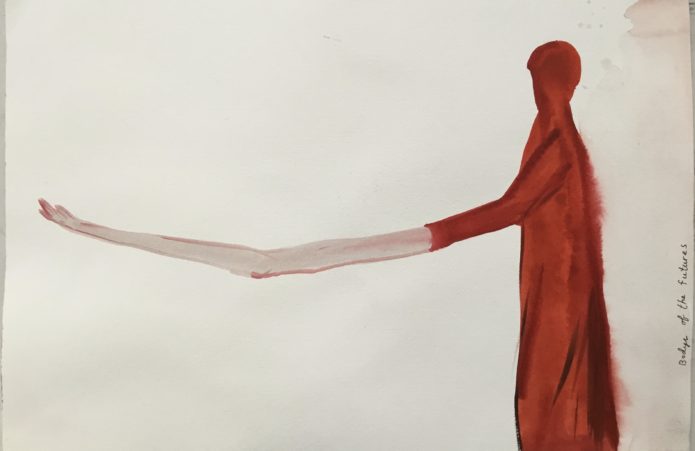
Exhibition: Drawing Stories
An online presentation of Framer Framed in collaboration with Amsterdam Museum
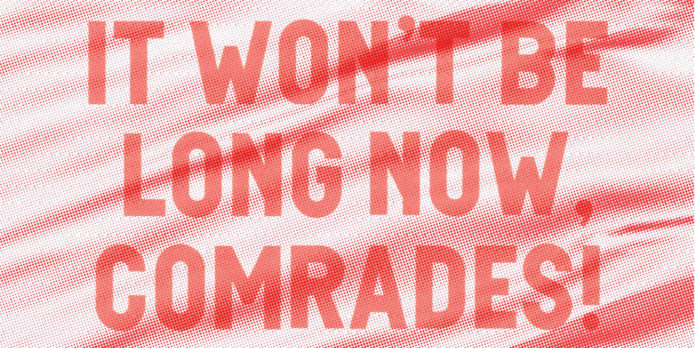
Exhibition: It Won't Be Long Now, Comrades!
Curated by Inga Lāce en Katia Krupennikova
Agenda
Finissage: To those who have no time to play
Live performance of 'Antigone Update' and discussion
Presentation: Letter to a Silk Road
With Marjolijn Boterenbrood, Malika Umarova & Fabienne Rachmadiev, moderated by Sandra Rottenberg
Book Launch: 'Amanda'
With Olga Micińska & Samantha McCulloch
Opening: To those who have no time to play
Exhibition Opening with artist Gluklya and a performance by Matras Platform
Network
Murad Zorava
Activist
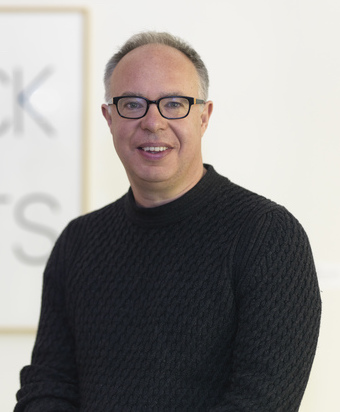
Charles Esche
Curator

Gluklya aka Natalia Pershina-Yakimanskaya
Artist
Magazine
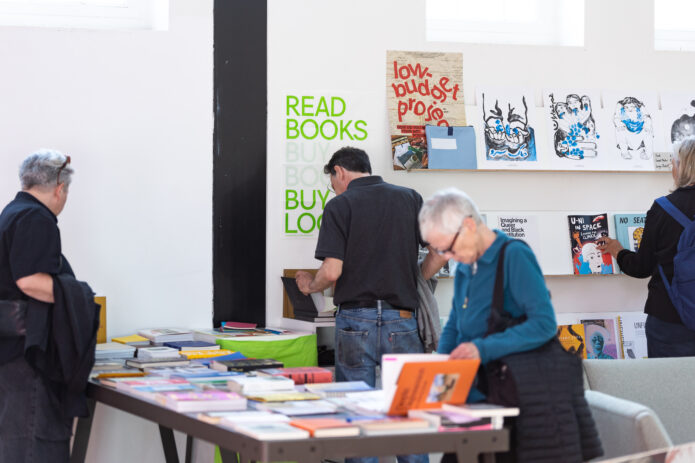
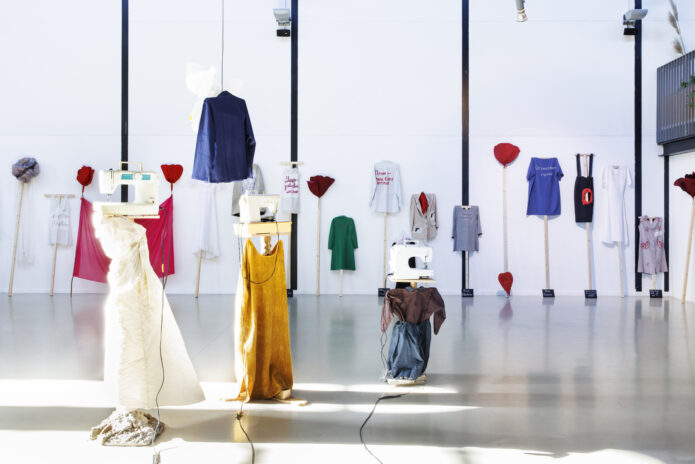
'To those who can imagine' by Anna Bitkina
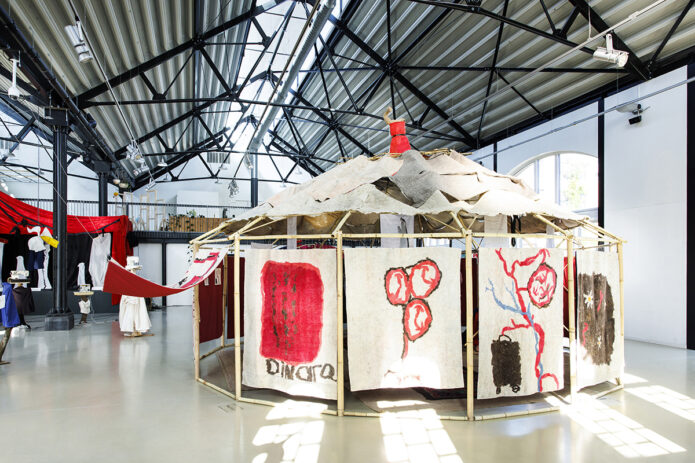
Who has no time to play? by Curator Charles Esche
